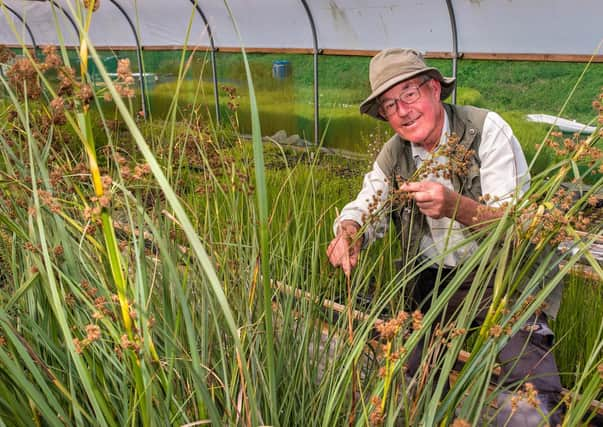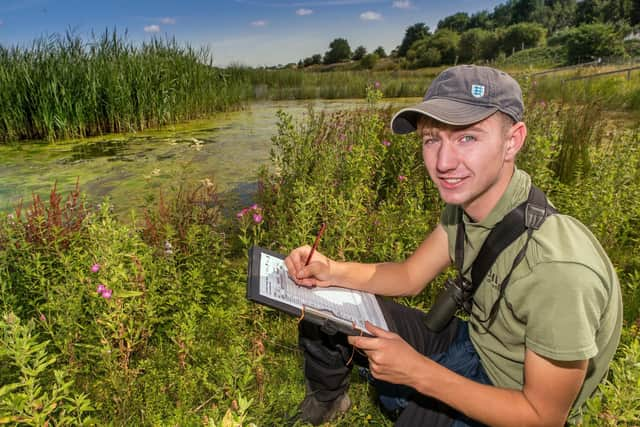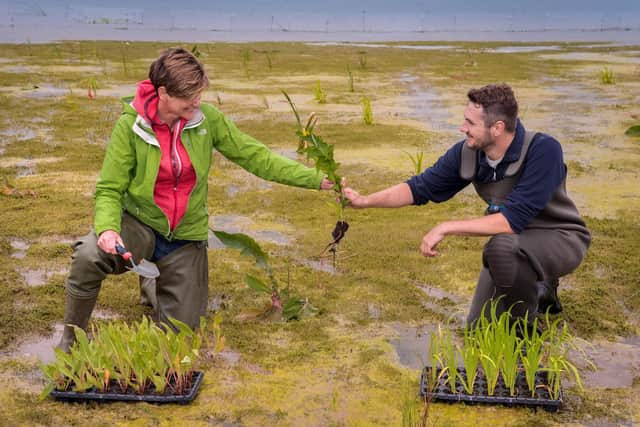Volunteers lead work to help climate


Nosterfield Nature Reserve was established almost 25-years ago by local nature enthusiast, Simon Warwick.
More than 90 per cent of wetland habitats in the region have been lost. Volunteers at the charity are rescuing them from oblivion. They are growing from seed tens of thousands of wetland plants - using surviving fragments of ancient wetland - to recreate habitat from centuries ago.
Advertisement
Hide AdAdvertisement
Hide AdThe former gravel quarry near Ripon is now nationally recognised for its unique conservation work.


The planting is led by married couple, Pan and Laurie Reed, both 69 and former botanical research scientists, before running a wholesale nursery. The pair began volunteering at Nosterfield a decade ago.
Laurie Reed, who has a PhD in plant fungi, said: “Plants are extremely important when it comes to climate change.
“There’s an emphasis world-wide on trees, but current research shows other areas are as important – like the upland peat areas which hold a lot of carbon, even though the plants up there are relatively small – sedges, rushes, grasses.”
Advertisement
Hide AdAdvertisement
Hide AdMartin Hammond, an ecologist at Nosterfield Nature Reserve, said: “As it’s entirely volunteer-led, it’s exciting stuff. No-one else is doing this ground-breaking work.


“They are bringing back some very rare, and in some cases extinct species to the region. Recreating those habitats could provide multiple benefits such as flood storage and carbon sequestration, it’s not just about providing wildlife habitats.”
Pan Reed, who studied heavy metals in plants before running their nursery near Wetherby growing herbs and wildflowers for 28 years, said it was important communities didn’t ‘give up’ against the daunting challenge of climate change.
Pan, from Boroughbridge, said: “There are things you can do locally. Volunteering is really good for you mentally, as well as the planet. Just get out there and join in, there will be something going on near you.
Advertisement
Hide AdAdvertisement
Hide Ad“We’re trailblazing in Yorkshire with wetland plants, and we’re hoping to create a blueprint that can be copied. But other people will be working in other areas. We can all work towards the same end – the preservation of our planet.”
One plant re-introduced is Great fen-sedge, which is now found on just five sites in Yorkshire. The team cracked how to germinate the plant, and now produce thousands of them, helping recreate ancient habitat from centuries ago in the disused quarry.
The ultimate ambition is to attract the Crane back to the region, after a 400-year absence.
The team plan to create a ‘blueprint’ of their work that can be then replicated by other conservation groups across the UK.